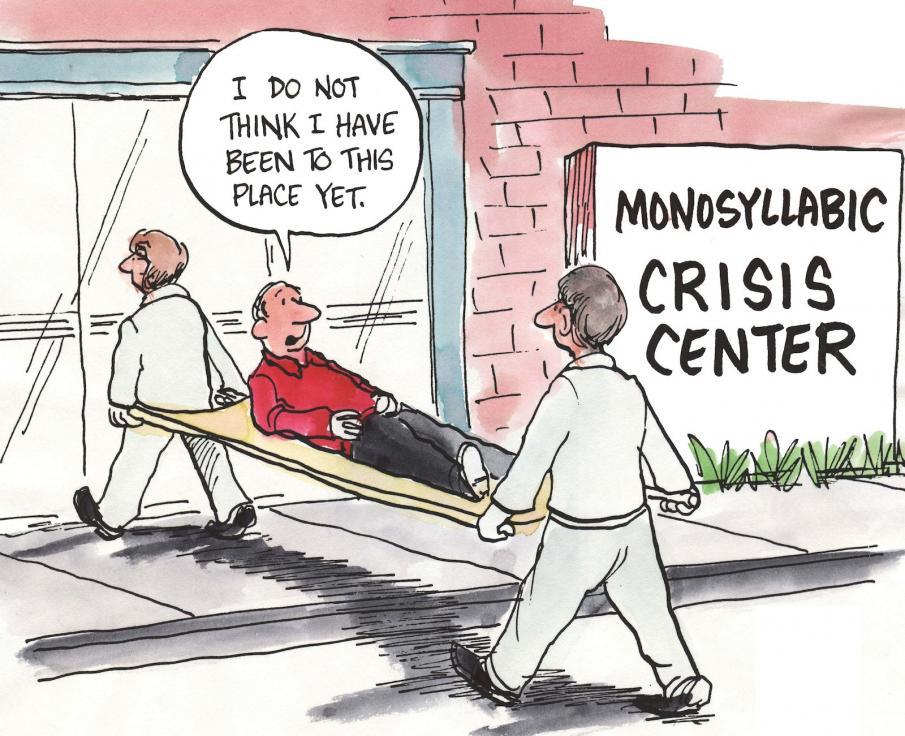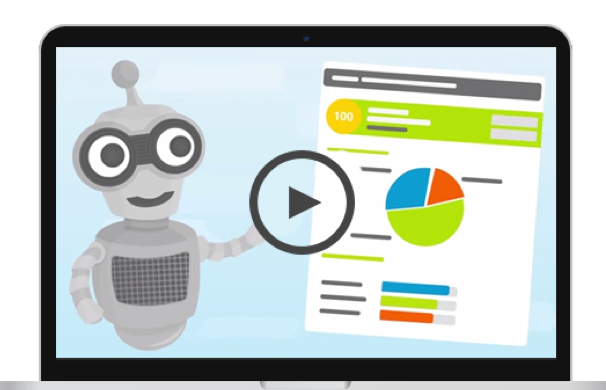Reaching Language Fluency – My Experience with Spanish (so far)
 Updated (6/10/2017) Fluency in the language we're learning is important for many of us, especially if we're talking with new friends. But, what is fluency?
Updated (6/10/2017) Fluency in the language we're learning is important for many of us, especially if we're talking with new friends. But, what is fluency?
Unless you think that being fluent means perfection, I would argue that these are the three essential marks of fluency:
1. Vocabulary. You have enough vocabulary to hold your own, to argue your point. You should not be constantly searching for words. If you can't think of a word or expression right away, you can easily talk around it, and find another way to say what's on your mind.
2. Pronunciation. Your pronunciation is adequate. Even if you don't sound absolutely like a native speaker, people can understand you. Otherwise, your conversation is not going to move forward.
3. Grammar. You can sustain a conversation with someone without thinking much about grammar. That means, even if your grammar isn't perfect, your mistakes won't throw your message off track.
In other words, if you're able to engage in conversations with native speakers without constantly searching for words and tripping up over grammar, you're well on your way to fluency. For me, the million dollar question is how an adult learner can get there.
I acquired my first three languages by growing up and living in different countries (Austria, the Netherlands, Canada/US). My fourth language, French, I learned in school and college, and I improved it during stays in France and (French) Switzerland.
Italian and Spanish I began to learn later in life. I thereby continue to experience all the challenges of an adult learner. In this post I'll write about my experience with Spanish. I not fluent, yet, but I'm ready to make some serious improvements.
VOCABULARY, PRONUNCIATION, GRAMMAR
Vocabulary
There are many ways and different tools to acquire vocabulary. Putting together a personal "system" of daily exposure to new vocabulary is not that hard. Social media sites are an easy source. For example, I  follow several word-a-day Facebook, Twitter, and Instagram accounts. When I check into these, I can always pick up some new words and phrases in Spanish.
follow several word-a-day Facebook, Twitter, and Instagram accounts. When I check into these, I can always pick up some new words and phrases in Spanish.
We're using Spanish post-its on furniture, gadgets, and other items in our house.
By reading news articles, opinion pieces, or stories in your target language, you can build a diverse vocabulary. If you write down any new words or put them into a Flashcard game such as Quizlet, you'll remember them better.
Online language programs and apps are set up to have you learn and practice vocabulary. Most of these offer the advantage of providing audio - which is essential for improving your pronunciation.
Pronunciation
Some programs let you record your voice, play it back, and compare your pronunciation with that of the native speaker. (This is one of the features the Gamesforlanguage quick games and courses provide.)
Voice recognition seems to be getting popular too. Though I must confess, the ones I've tried tend to frustrate me more than they help.
In any case, recording your voice and playing it back is an excellent way to improve your pronunciation - even if there's no native speaker for comparison.
 Grammar
Grammar
Unless you love memorizing conjugation tables and case endings, it's best to acquire gradually and in context. The idea is to become aware of patterns. Here again, reading will help you a lot.
Once you've internalized a grammatical structure, you can build on it. That may be a good time to look it up, learn the rule, and try out a few more examples in your next conversation.
WHEN TO START SPEAKING?
What has worked for me is to start speaking in my target language right from the start! I use every opportunity to say words and phrases out loud.
One way to get beyond individual words is to memorize dialogues. These you can say to yourself, and if possible out loud at various times during the day. You can even "perform" them as real conversations adding gestures and emotional expression.

Speaking from day one is also Benny Lewis' advice in Fluent in 3 Months. If you have a partner or friend who's willing to engage in simple target language conversations with you, that's perfect.
On the other hand, Steve Kaufmann of LingQ suggests that you hold off on realconversations until you're ready. For him, the magic word is "input" (reading, listening, watching) until you have enough vocabulary to communicate on more than a basic level.
I do understand Steve Kaufmann's argument. However, in my experience "lots of input" alone has not been enough to make me even somewhat fluent in Spanish.
MY ROAD TO A MODEST FLUENCY
This year, I'm intent on becoming fluent in Spanish, my sixth language. I started learning Spanish four years ago, casually, and since then have been trying out and using various programs. On the average, I've spent about 30 minutes a day doing various things in Spanish: listening, playing games, writing, watching films, reading headlines, etc.
Of course, I know our GamesforLanguage Spanish 1 course by heart, often playing one or more of the 36 scenes to work on modifications.
 Last year I used Duolingo's Spanish course as well as a 3-month subscription for Babbel's Spanish course. Currently I am using Lingualia's (one of our partners) Spanish course daily. (You can read my review of Lingualia HERE.) We are listening to Spanish radio stations and are watching Spanish movies (we find Spanish [not English] subtitles especially helpful!)
Last year I used Duolingo's Spanish course as well as a 3-month subscription for Babbel's Spanish course. Currently I am using Lingualia's (one of our partners) Spanish course daily. (You can read my review of Lingualia HERE.) We are listening to Spanish radio stations and are watching Spanish movies (we find Spanish [not English] subtitles especially helpful!)
My husband and I spent one month in Barcelona, four years ago, and one month in Seville, last year. Though we thoroughly enjoyed interacting with locals as much as we could, met with language exchange partners, engaged a tutor (see: How a Tutor Boosted Our Language Fluency), and improved our Spanish during each stay, I still don't feel that I am fluent.
In order to gain more confidence in speaking, I need another learning boost - intense practice with conversation partners, who are able to give me immediate and informed feedback.
WHY AN ONLINE LANGUAGE TUTOR
My reading and listening comprehension skills are a lot better than my speaking and writing skills. I have a good grasp of rudimentary Spanish grammar and a passable pronunciation. However, I do not believe that lots more "input" (reading, listening, watching) is going to boost my speaking skills, per se.
We don't have any Spanish-speaking friends at the moment and living in Spain is out of the question. So, to become fluent in Spanish, I've started using an online tutor. To date, I've had just a few Skype lessons on italki. The jury is still out, but I feel very encouraged.
FROM HALTING SPEECH TO MODEST FLUENCY
With italki I've had two different types of Spanish-only Skype lessons. I'm not yet sure which model will work best for me.
Tutor #1- One tutor, let's call him Carlos, has engaged me in real conversations. We talked about topics that I would also want to discuss with others, for example: the main difference between living in Europe and in the United States; what's going on in politics; how I came to be fluent in four languages; or, what it feels like to live in other countries (something that applies to him as well). To me the conversations were interesting and personal to the extent that we exchanged opinions and talked about some experiences.
 There were lots of questions back and forth. Carlos corrected some of my mistakes, but not too much, and helped me formulate my thoughts. At the end of the lesson, we went over a list of words and phrases, again with corrections. As he talked,he typed the list into my Skype message box.
There were lots of questions back and forth. Carlos corrected some of my mistakes, but not too much, and helped me formulate my thoughts. At the end of the lesson, we went over a list of words and phrases, again with corrections. As he talked,he typed the list into my Skype message box.
Tutor #2 - The second tutor, let's call him Juan, immediately started me on a B1 Level textbook, which he pulled up on Skype. He then proceeded to go over the first exercises of Chapter 1.
The topic was "daily life," and dealt with everyday activities and hobbies. The exercises included typical vocabulary and related grammar points. Juan asked me to read various sentences and to answer questions, but on the whole, the lesson felt somewhat impersonal, more like a regular class.
With both tutors, I felt the lessons were challenging. I had to speak quite a bit, and to listen hard to make sure I understood. At the end of each lesson, I felt "foreign language fatigue." One hour was enough, any longer and my brain would have started to shut down.
I haven't yet chosen which tutor to continue with. Italki, in fact encourages you to try out several before making up your mind. But it's clear to me that I can get closer to fluency by using an experienced tutor.
I'll also try out another site, Hellotalk, and expect to add language-exchange sessions with native speakers as well. But I'll write about that another time. Stay tuned.
POSTSCRIPT: Ulrike recently discovered an Annenberg Learner Video series "Destinos", which she has been watching regularly for several weeks now.
Bio: Ulrike Rettig is the co-founder of Gamesforlanguage.com. She is a lifelong language learner, growing up in Austria, the Netherlands, and Canada. You can follow her on Facebook, Twitter and Instagram, and leave any comments with contact.
Disclosure: Only the links above to Fluent in 3 Months, italki, and Lingualia are to a partner's program with revenue-sharing, should you decide to subscribe.
